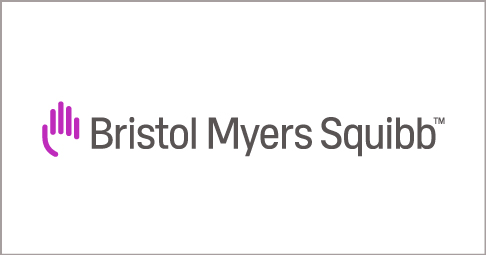Have A Chat
During the pandemic, more of us were affected by loneliness than ever before.1,2 Now, even as restrictions are lifted and we’re able to see our friends and family again, it’s important to take the time to check in with those around you. You never know the difference you could make.
#HaveAChat

The Have A Chat campaign is a joint initiative by UK charity, Campaign to End Loneliness and Bristol Myers Squibb to address loneliness as a major public health issue in the UK & Ireland. Together, we aimed to raise awareness of the powerful impact that having a chat and making connections can have on tackling loneliness and inspiring people to discover the power of human connection.
As part of the campaign, we worked with choreographer and former Strictly Come Dancing judge Arlene Phillips, CBE, to create a video which tells the story of how just taking a moment out of your day to connect with someone can make a big difference. Through the campaign, we asked people to have a chat to raise awareness of and address the major public health issue of loneliness.
View the full video here:
The Have A Chat survey, commissioned by Bristol Myers Squibb in partnership with the Campaign to End Loneliness and carried out by Ipsos MORI, highlighted loneliness as a serious issue during the COVID-19 pandemic in the UK & Ireland.3 However, the survey also found that the 2020 Spring lockdown had enhanced the nation’s sense of community, and showed that staying in touch is vital to combating loneliness during lockdown(s).3
Through our work with patient groups and charities, we became aware of the impact that isolation and loneliness is having on patients, especially those living with serious illnesses who have had to shield. This is why Bristol Myers Squibb is proud to support the vital work undertaken by the Campaign to End Loneliness and is passionate about driving meaningful change for those affected by loneliness.
Social restrictions imposed during the pandemic thrust the issue of loneliness into the spotlight, however as we emerge from the height of the pandemic, it is clear that loneliness remains an issue for many people.4 We cannot tackle loneliness alone, but together, small actions can make a huge difference particularly to those isolated patients that the patient groups we know seek to support.
Looking out for the signs of loneliness
- Spending time alone - people who feel lonely are more likely to withdraw from social situations and less likely to look to others for social support.5
- Frequent illness or increased tiredness - loneliness can contribute to many physical and mental health conditions and lonely people are more likely to struggle to get a good night’s sleep.6
- Lowered productivity - evidence shows that loneliness can impact performance, productivity and resilience at work.7
How can I check in with someone?
- Smile and wave - it can really brighten someone’s day.
- Stop and say hello - this simple greeting is a great way to make a connection.
- Have a chat - people often underestimate just how much the person they’re having a conversation with is enjoying their company.8
- Ask someone how they are – when things are busy, we sometimes forget to check in with people – but it only takes a few minutes. Call an old friend for a chat, check up on a family member or if you know someone who’s living alone, take the time to check in with them.
- Ask someone how they really are - loneliness can affect anyone, even those you wouldn’t expect - and it’s easy to hide. Take the time to find out how someone really is.
- During the COVID-19 pandemic, Bristol Myers Squibb supported employees to volunteer and return to the NHS, to provide much needed resource as the pandemic continues to place a huge demand on the NHS and non-profit organisations.
- Targeted donations of PPE and other equipment were made to help local communities in the UK&I and across the globe.
- With hospitals overwhelmed by COVID-19 patients, the NHS experienced interruptions to cancer services and treatment capacity issues due to the need for social distancing. To aid the continuation of services, Bristol Myers Squibb donated over £2 million to NHS cancer services, charities and patient groups. This included a donation to Hope for Tomorrow, the largest provider of Mobile Cancer Care Units in the UK, who are using the funds to build two new mobile units.
- Throughout the pandemic and moving forward throughout the resulting loneliness epidemic, Bristol Myers Squibb UK and Ireland has been and will continue to be committed to tackling loneliness in the workplace. Through proactive efforts with initiatives such as Have A Chat Day - where colleagues were encouraged to connect with colleagues and neighbours - Bristol Myers Squibb UK and Ireland look to support employees, help them stay connected and address feelings of isolation.
References:
- Office for National Statistics. Coronavirus and loneliness, Great Britain: 3 April to 3 May 2020. Available from: https://www.ons.gov.uk/peoplepopulationandcommunity/wellbeing/bulletins/coronavirusandlonelinessgreatbritain/3aprilto3may2020 Last accessed: November 2020.
- Central Statistics Office. Social Impact of COVID-19 Survey April 2020. Available from: https://www.cso.ie/en/releasesandpublications/ep/p-sic19/socialimpactofcovid-19surveyapril2020/introductionandsummaryofresults/ Last accessed: November 2020
- Have A Chat survey, commissioned by Bristol Myers Squibb in partnership with the Campaign to End Loneliness, carried out by IPSOS Mori in October 2020. Data on file
- O’Sullivan R, Leavey G and Lawlor B. (2022). BMJ. 376:o280.
- Griffin J. 2010. The Lonely Society? The Mental Health Foundation. Available at: https://www.mentalhealth.org.uk/sites/default/files/the_lonely_society_report.pdf. Last Accessed February 2022.
- Kurina, LM et al. (2011). Sleep. 34(11):1519–1526.
- Ozcelik H & Barsade SG (2018). Acad Management J. 61(6) [ePub].
- Boothby EJ., Cooney G, Sandstrom GM., et al. (2018). Psychological Science. 29(11): 1742-1756.
NO-GB-2200026
Date or preparation: April 2022

